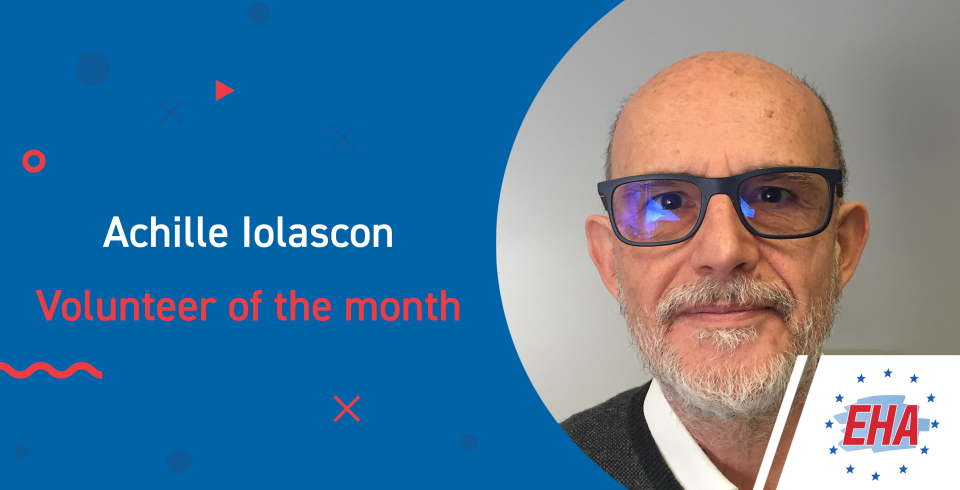This information originally appeared on the previous EHA website. Links to other pages may be inactive.

- Can you tell us what you do for EHA and when you started?
I serve the EHA as chairman of the Study working group on “Red cells and iron” since June 2014. It was a very fruitful and exciting period. I try to diffuse the interest for this group and now we have more than 130 participants. The SWG on Red Cell and Iron focuses on erythroblast and erythrocyte biology in normal and disease states. This SWG covers the clinical areas of inherited and acquired disorders of the erythrocyte and iron metabolism. Inherited disorders include the hemoglobinopathies and related disorders, disorders of metabolism, membrane abnormalities and other disorders of red blood cell shape, dyserythropoietic anemias and failure of erythroid cell production, and inherited erythrocytosis. Iron metabolism and related clinical conditions are also covered by this group.
- How did you become a volunteer? Who helped/encouraged you to become one?
I worked since 1980 in the field of red cells disorders and erythropoiesis. The main achievements in this field were: studies on hereditary spherocytosis and ellyptocytosis. Mapping and cloning of several genes such as: hereditary thrombocytopenia, congenital dyserythropoietic anemia type I and type II, DMT1 deficiency in humans, hereditary stomatocytosis (DHS1 and DHS2) and familial pseudohyperkalemia. My mentors were Lucio Luzzatto and Jean Delaunay.
- What is your motivation on volunteering for EHA?
The EHA is a great, modern, and innovative Association in the world of hematology. It combines hematologists from every country in the world: young and eminent, physicians and biologists, researchers and clinics. My main motivation is the possibility to put a major emphasis on science and research in hematology. I think that this is essential for us to continue to make improvements in translational hematology and clinical care. Moreover, equally motivating are the people I have met at EHA. All hematologists, educationalists and office staff I have worked with have stimulated me with their commitment, passion and open-mindedness.
- Why you choose to serve EHA?
I choose to serve EHA for two main reasons: 1. I recognized the importance for the hematology community in Europe. Its educational initiatives improve the quality of hematologists, especially for young people that are always in foreground; its lobbying with the European Commission increases the profile of laboratory and clinical hematology; its associative organization favors collaboration beyond our borders; and its altruistic philosophy greatly benefits less fortunate areas in the world.
The second is the personal honor of being part of a modern, innovative Association to which I can give an active contribution and from which I have learnt so much.
- EHA: What does volunteering for EHA give you/do to you?
Working with EHA has contributed enormously to my personal growth not only as a hematologist but also as a professional, mentor and leader. I learned how to handle a scientific working group that has been challenging and fulfilling. I was also honored to be the mentor of my co-worker that won in 2018 a Junior Grant of EHA. The people and projects I have collaborated with in EHA have broadened my horizons in all senses and had a huge impact on my professional life.
- What would you say to others who would like to volunteer for EHA as well?
I would say: EHA needs you! Support EHA to be challenged by stimulating projects and motivating people.